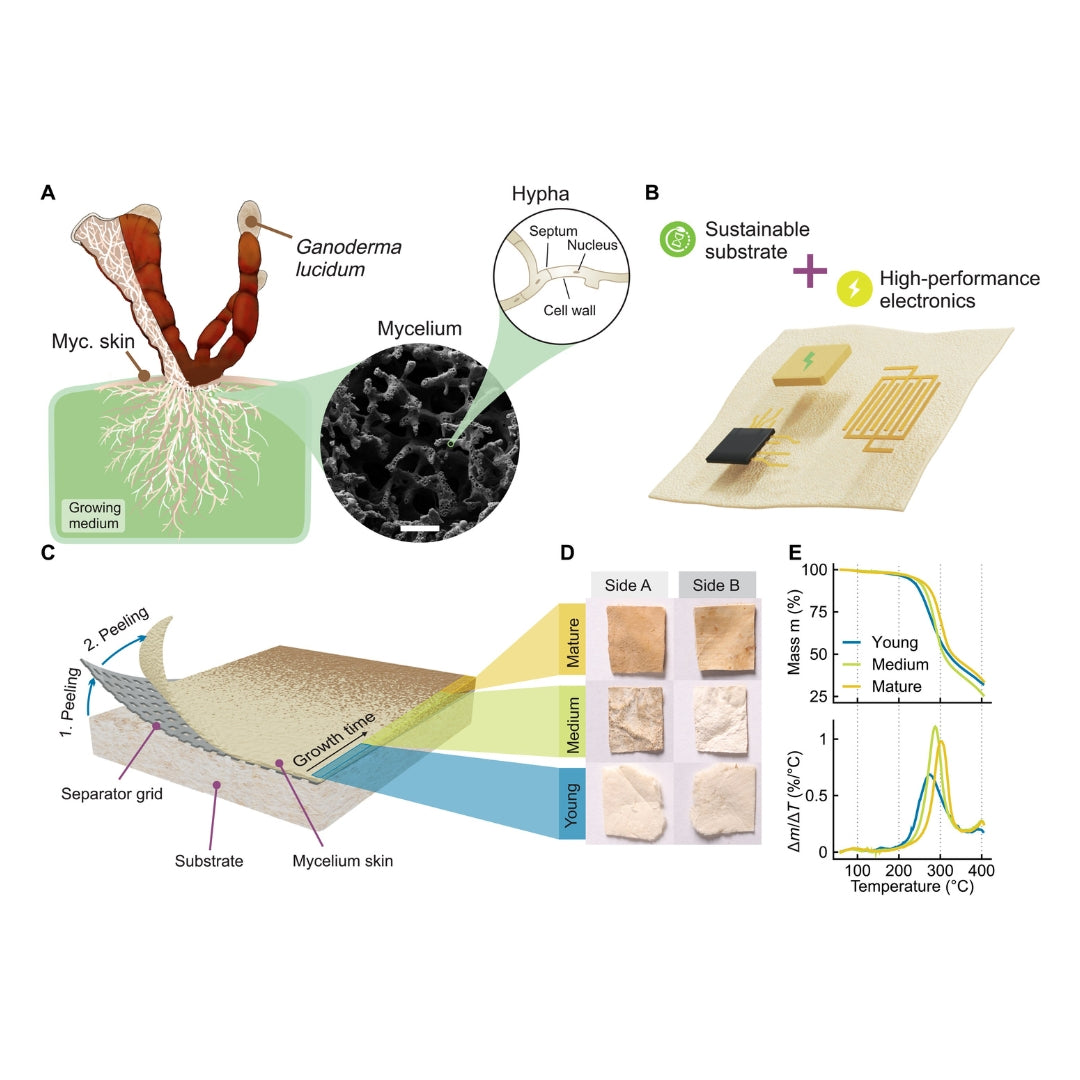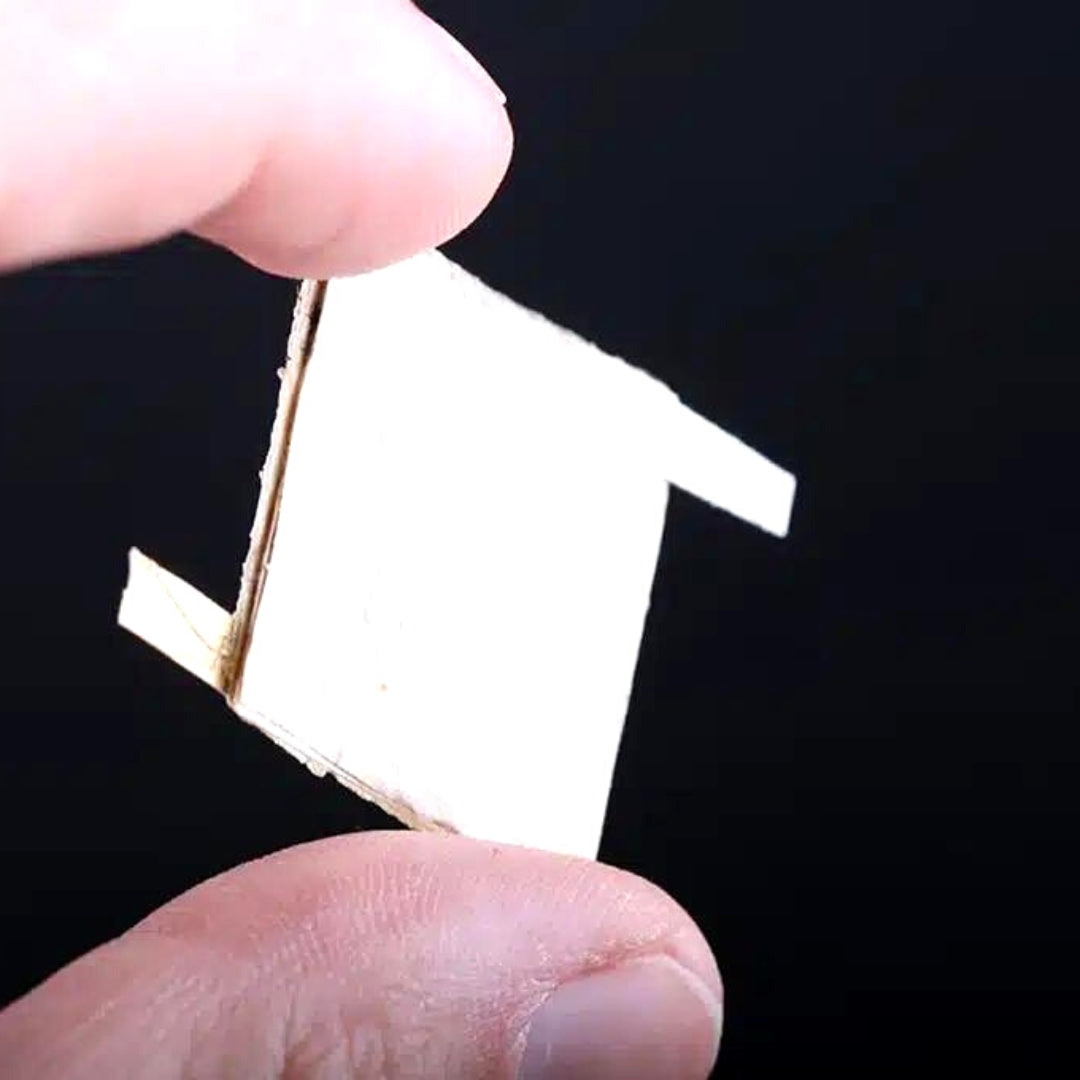The world is one step closer to recyclable electronics, with a new discovery that mushroom skin can be a biodegradable substrate for plastic computer chips! Let’s take a look.


Image: Soft Matter Physics, JKU Linz
The World Generates Over 140,000 Tons Of Electronic Waste Daily!
As our laptops, phones, and smartwatches become ever more integral to our daily lives, the mountain of electronic waste is growing. The world generates over 140,000 tons of electronic waste each day — and it’s quickly becoming too great to ignore. Yet most of this waste is hard to recycle because it contains plastic, toxic components, and is tough to break down.
But now, in the field of soft electronics, some engineers have turned to nature to help solve our e-waste problem. Researchers have utilised mushrooms, yes, mushrooms, for help! In a new Science Advances study, it’s shown how mushroom skin could be a biodegradable substrate for plastic computer chips, bringing us one step closer to recyclable electronics.


Image: Science Advances
Reishi Mushrooms Could Be Our E-Waste Superhero
Martin Kaltenbrunner, an electronic engineer at Johannes Kepler University in Linz, Austria, says that “It’s better to think about sustainable materials and approaches early on, because in the end, we’ll end up with a lot of waste”.
Mushrooms are already popular as eco-friendly alternatives for leather and packaging materials. When one of Kaltenbrunner’s Ph.D. students was studying wood–mushroom composites for insulation materials, he found that Reishi mushrooms grow a compact protective skin, which was able to peel off like sheets of paper, and when dried had a strong, flexible and current - and heat-resistant ability that was perfect for a circuit substrate!
From there, the researchers could fasten metal circuits on the skin. How brilliant!


Image: Soft Matter Physics, JKU Linz
This Circuit Board Is Mostly Biodegradable Too!
The team has also made this mushroom device mostly biodegradable! The fungal skin was shown to hit the “sweet spot” for degradability, whereas other naturally derived materials either degrade too quickly, or need industrial composting facilities to break down. The mushroom skin by contrast “lasts for a long time when kept reasonably dry, but in a standard household compost, it would degrade entirely within two weeks or less. No special facilities needed” says Kaltenbrunner.
Mushrooms cultivate easily on waste wood, and the skin grows naturally and does not need much processing, he adds. “Our fungus-based materials do have the potential to be scaled at low costs to the needs of the everyday electronics industry, while being less resource and energy intensive than other approaches.”
The team is now researching methods that would allow them to reliably grow uniform mushroom skins. They also aim to integrate the sustainable substrate with electronics components that are degradable themselves, to make fully biodegradable circuits!
What do you think about mushroom skins in electronics? We are hoping this technology will become mainstream in the future!
For more stories about sustainable innovations, check out our Eco News category and the blogs below.
A New Four Wheelie Bin System To Help Victorians Recycle Soft Plastics And Pizza Boxes!
Scientists Propose Transforming Skyscrappers Into Massive Gravity-Powered Batteries!
Scientsits Develop A Bionic Robot-Fish That Removes Microplastics From Oceans!

